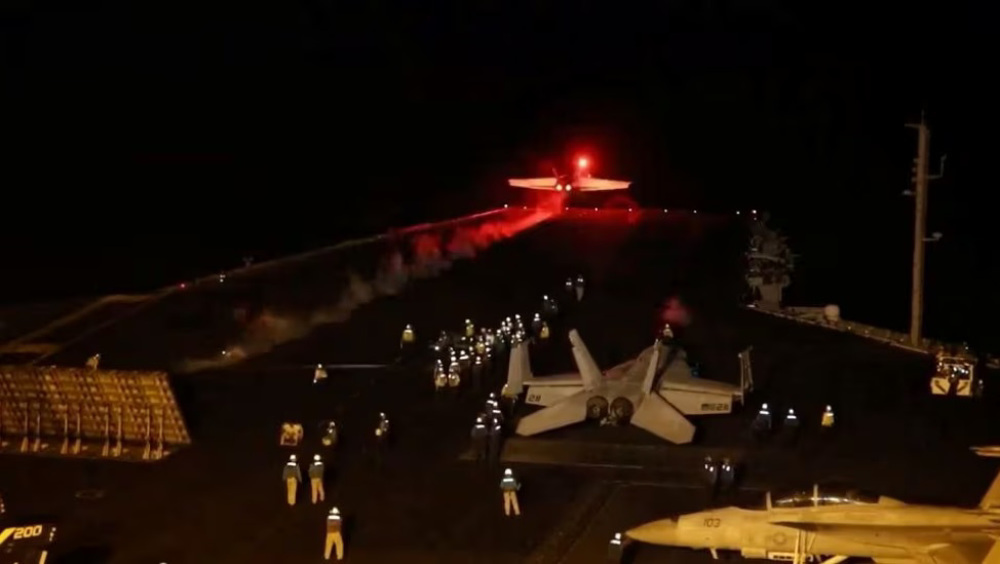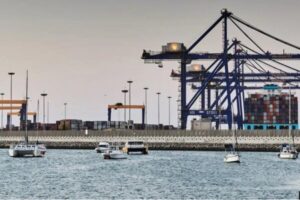Yemen’s Ansarullah resistance movement has strongly condemned the United States and Britain over repeated airstrikes on positions in the Arab country, cautioning against further escalation of conflict in the West Asia region.
Ali al-Qahoum, a member of Ansarullah’s political bureau, said on Saturday night that the insistence of Washington and London to press ahead with their acts of aggression against Yemen at the behest of the Tel Aviv regime will inevitably boomerang on themselves, and will definitely fan the flames of the regional crisis.
The remarks came as US and UK forces had launched a new wave of attacks against Yemen, whose Armed Forces have been targeting Israeli interests in the Red Sea in solidarity with Palestinians, earlier in the day.
Yemen’s official Saba news agency, citing a security source speaking on condition of anonymity, reported that three aerial assaults struck the al-Katheeb neighborhood in the strategic Red Sea port city of Hudaydah, while another targeted the al-Taif coastal area in the Durayhimi district.
A US-British airstrike hit targets in the al-Jah area of the Bayt al-Faqih district as well.
Moreover, the United States and the United Kingdom carried out an airstrike against a major oil export terminal in Yemen’s Hudaydah province.
An unnamed security source said the attack hit the Port of Ras Isa. No further details were immediately available.
The United States and Britain have been carrying out such strikes on Yemen since Washington and its allies offered the Tel Aviv regime unqualified support and said Yemeni forces bear the consequences of attacks against Israeli-owned ships or merchant vessels heading to the occupied territories.
Yemenis have declared their open support for Palestine’s struggle against the Israeli occupation since the regime launched a devastating war on Gaza on October 7 after the territory’s Palestinian resistance movements carried out the surprise Operation Al-Aqsa Storm.
The Yemeni Armed Forces have said they won’t stop retaliatory strikes.
The maritime attacks have forced some of the world’s biggest shipping and oil companies to suspend transit through one of the world’s most important maritime trade routes.
Tankers are instead adding thousands of miles to international shipping routes by sailing around the continent of Africa rather than going through the Suez Canal.




